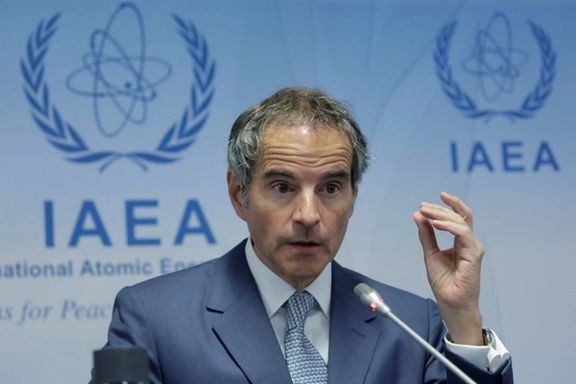IAEA Denies Watering Down Iran Nuclear Investigation

The UN nuclear watchdog, the IAEA, denied it had lowered its standards in an investigation into past Iran's activities after Israel accused it of "capitulation to Iranian pressure".

The UN nuclear watchdog, the IAEA, denied it had lowered its standards in an investigation into past Iran's activities after Israel accused it of "capitulation to Iranian pressure".
The dispute centres on the International Atomic Energy Agency's years-long investigation into the origin of uranium particles found at three undeclared Iranian sites, most of which appear to have been active around two decades ago.
"We never ever, never ever water down our standards. We stand by our standards, we apply our standards," IAEA Director-General Rafael Grossi told a news conference when asked about unusually strong criticism of his agency by Israeli Prime Minister Benjamin Netanyahu on Sunday.
US intelligence agencies and the IAEA believe Iran had a nuclear weapons program that it halted in 2003.
The IAEA has long denounced Iranian stonewalling of its investigation, which spurred its 35-nation Board of Governors to pass a resolution last year ordering Iran to comply immediately.
In a report to member states last week, Grossi said Iran had explained depleted uranium traces at one site.
The report, seen by Reuters, said Iran had provided a "possible explanation ... Therefore, the agency at this time has no additional questions on the depleted uranium particles detected at 'Marivan' or on the location, and the matter is no longer outstanding at this stage."
Netanyahu said Iran's explanation was "technically impossible", adding: "The agency's capitulation to Iranian pressure is a black stain on its record."
Grossi suggested on Monday that Iran has been dragging its feet over the re-installation of monitoring equipment that was removed at Tehran's behest a year ago.
"What needs to happen now is a sustained and uninterrupted process that leads to all the commitments contained in the Joint Statement being fulfilled without further delay," Grossi said in a statement to the IAEA board.